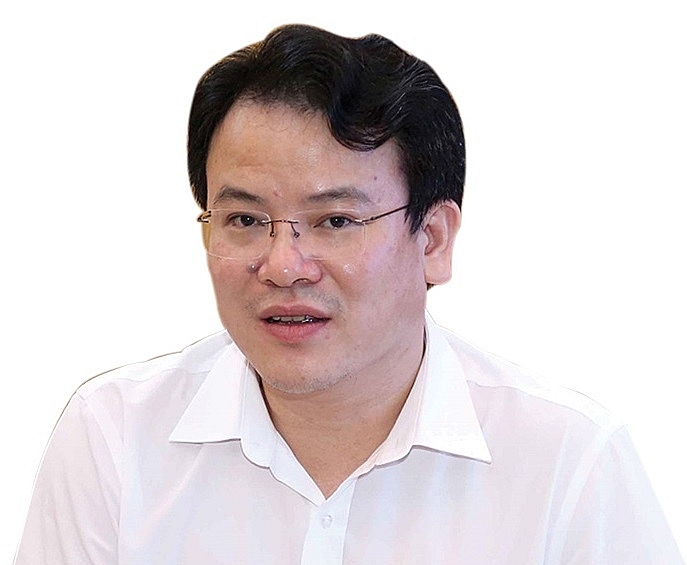Signs are there for exciting prospects in M&A sphere
 |
| Deputy Minister of Planning and Investment Tran Quoc Phuong |
What is your assessment on foreign direct investment (FDI) attraction, particularly via mergers and acquisitions (M&A) in this new global context?
Due to pandemic impacts, falling FDI has affected developing countries. COVID-19 has redirected global trends, and in part enabled the emergence of nationalism, racism, and xenophobia, which increases the competition among the major economies.
As the pandemic became more severe, the trend of protectionism increased, and all governments are trying to provide solutions to protect domestic firms from bankruptcy.
Policy related to FDI mobilisation plays an important role in this context, to lure more investors to Vietnam and hold them to carry out more projects and expand their business in the country, thus contributing to the socioeconomic development of Vietnam.
Against the changes in the socioeconomic and political situation, as well as the consequences of the pandemic, Vietnam has highlighted some prioritised investment and business lines that domestic investors cannot carry out, to welcome foreign investors.
Particularly, the government always welcomes and facilitates foreign-invested projects that combine close links with local businesses, enabling them to upgrade technology, manage skills, join in supply chains, and approach the world’s markets.
Industry 4.0 and digital transformation have significantly influenced the global economy. So Vietnam highly appreciates investors like the high-tech giants coming from developed countries, as well as building some special incentives for them.
The Law on Investment that was approved and will take effect from early next year, along with decrees and circulars guiding law implementation, will be a very clear legal framework and direction for all investors to look for, develop, and do business in Vietnam, as well as provide some special incentives to welcome the best and the most efficient FDI flow into the country.
Do you think M&A is able bring about a new investment trend as Vietnam tries to move on from the pandemic?
It is clear that M&A is becoming trendy in FDI mobilisation. According to the global network for cross-border M&A transactions RECOF, if excluding 2014, Vietnam has been in the top three M&A destinations in ASEAN for Japanese investors, in terms of transaction numbers, during the last decade.
In 2019, the number of Japanese transactions in Vietnam was the biggest ever at 33, second in the region after Singapore. The value of transactions was $389 million, the first time in the top three of the region. That means the value of Vietnamese companies has been increasing, and investors are paying much more attention to the Vietnamese market.
There are always a lot of business concepts floating around, and it is trendy to acquire some available companies. This will reduce a lot of time carrying out administrative procedures, establishing business, hiring land or facilities, recruiting, market research, and finding partners. So it is easy enough to save time and effort, and quickly seize opportunities especially during the pandemic, when travel remains difficult.
Some countries are still closing their borders to prevent the infection of COVID-19, so all M&A activities are slowing down, but in the future the market will boom thanks to the huge demand of both sellers and buyers – especially in real estate, finance-banking, industry, retail, logistics, agriculture, pharmaceuticals and healthcare, and construction.
However, in the context that Vietnam is boosting international integration, with a rise in trade and investment attraction, it is necessary to balance local businesses’ demand for development and M&A activities. Especially in key sectors of the economy, some considerations must remain on not having foreign investors acquire local businesses, while at the same time a focus should be placed on maintaining strong local brands.
How do you assess the change of requirements and tastes of M&A investors heading into next year?
The pandemic is a much different situation from the economic crisis in the 2008-2009 period as several sectors are not being impacted as heavily here, such as finance-banking, healthcare, and others. A recently-published M&A report from Mergermarket, a specialist in M&A intelligence, notes that Vietnam ranks second in Southeast Asia on the number of transactions in the first half of 2020. Most of this was poured in by Kohlberg Kravis Roberts into local real estate giant Vinhomes, amounting to $651 million.
M&A activities in the region have calmed down in the first half of the year. However, pharmaceuticals, medicines, and biotechnology are leading the list of M&A transactions overseas in most countries now. This is followed by real estate, especially resorts.
Most investors will seemingly wait and consider carefully because of the current unpredictable context, and some businesses are trying to hold cash as much as they can. So some transactions, which are being negotiated, will not be completed and announced this year – but this leaves them to announce such deals as part of a hopeful boom in 2021.
What the stars mean:
★ Poor ★ ★ Promising ★★★ Good ★★★★ Very good ★★★★★ Exceptional
 Tag:
Tag:
Related Contents
Latest News
More News
- BJC to spend $723 million acquiring MM Mega Market Vietnam (January 22, 2026 | 20:29)
- NamiTech raises $4 million in funding (January 20, 2026 | 16:33)
- Livzon subsidiary seeks control of Imexpharm (January 17, 2026 | 15:54)
- Consumer deals drive Vietnam’s M&A rebound in December (January 16, 2026 | 16:08)
- Southeast Asia tech funding rebounds on late-stage deals (January 08, 2026 | 10:35)
- DKSH to acquire Vietnamese healthcare distributor Biomedic (December 24, 2025 | 15:46)
- Central Retail refocuses Vietnam strategy with Nguyen Kim exit (December 24, 2025 | 15:01)
- RongViet Securities wins sixth consecutive M&A advisory award (December 22, 2025 | 17:30)
- Kido Group divests from ice cream and frozen foods (December 18, 2025 | 16:49)
- Insurtech startup Saladin wraps up Series A funding round (December 17, 2025 | 09:10)




















 Mobile Version
Mobile Version